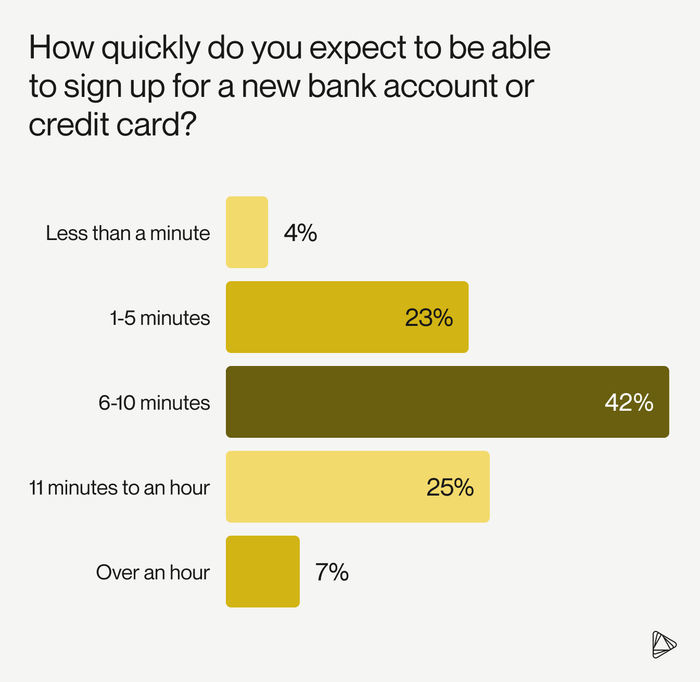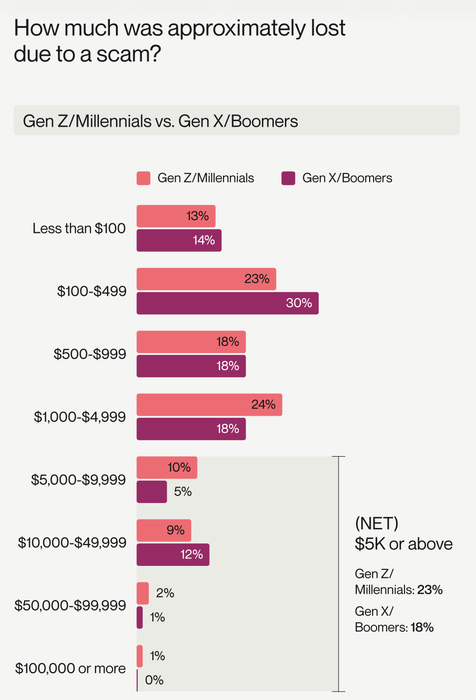NEW YORK, October 21, 2025 – With criminals increasingly using AI to develop more convincing scams, consumers also expect their banks to use the most advanced AI tools to protect them from bad actors, according to the 2025 State of Scams Report from Alloy, a leading identity and fraud prevention platform provider. 85% of Americans worry that AI technology makes scams harder to detect; topping their concerns are AI-driven bank impersonations (28%), voice cloning phone calls (21%) and synthetic identity fraud (18%).
While consumers report fears of AI being used against them, the majority also expect financial institutions to use AI to help fight fraud. Two-thirds (66%) of consumers say they are more likely to choose a financial institution that uses AI security measures to protect them. And 97% of customers indicated that fraud prevention and security measures are the most important factor when selecting a financial institution.

The report, based on a Harris Poll survey of 2,000 American consumers, found that scams have become deeply personal:
- 62% of respondents report they have been victims of a scam themselves or know someone who has
- Over a quarter (28%) of respondents reported losing money as a result of a financial scam. Of those victims, 21% reported losing $5,000 or more.
- Consumers ranked emotional distress (29%) as the worst consequence of being scammed

"The data confirms what we're seeing on the ground: AI hasn't made fraudsters more sophisticated, it's made them more efficient," said Sara Seguin, Alloy. "A single criminal can now launch thousands of personalized attacks in minutes. But here's what's fascinating: consumers get it. They're demanding banks use the same AI technologies to protect them."
The report comes at a time when financial scams are pervasive. Another recent report from the Aspen Institute’s National Task Force on Fraud and Scam Prevention found that a majority of Americans say they get scam calls, emails, and texts at least weekly, and more than 50 million U.S. adults have lost money to an online scam or attack.
Additional findings from the 2025 State of Scams Report include:
- Consumers hold banks responsible: Two-thirds (67%) of consumers said that financial institutions should reimburse lost money for scams even when the transaction was personally authorized. At 73%, Gen Z and Millennials were even more likely to expect reimbursement from their financial institution, compared to 62% of Gen X and Boomers.
- Privacy takes a backseat to protection: 69% of Americans are willing to trade some privacy for AI-powered scam protection
- Trust hangs in the balance: 87% would lose trust in their financial institution if it failed to notify them about attempted scams
“As fraudsters’ use of AI tools accelerates, the scope and scale of authorized payment scams edge closer to a tipping point that threatens to upend the trust relationship across the whole financial system,” said Trace Fooshée, Strategic Advisor at Datos Insights. “As this stark reality settles in, financial institutions are racing to adjust their standards of care and investment priorities to amplify their use of AI tools and to reinvent a more deliberate and collaborative approach to managing and improving customer safety.”
The full 2025 State of Scams Report is available here.
About Alloy
Alloy provides an identity and fraud prevention platform that enables global financial institutions and fintechs to manage identity risk so they can grow with confidence. Over 700 of the world's largest financial institutions and fintechs turn to Alloy's end-to-end platform to access actionable intelligence and the broadest network of data sources across the industry, as well as stay ahead of fraud, credit, and compliance risks. Founded in 2015, Alloy is powering the delivery of great financial products to more customers around the world. Learn more at alloy.com.
